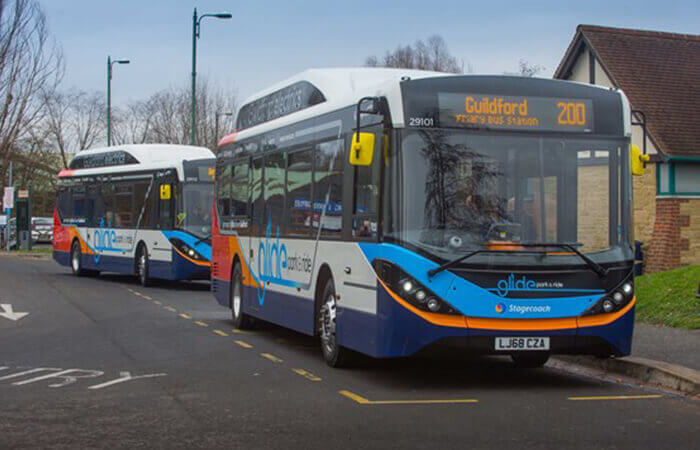Stagecoach has cut carbon emissions from its businesses by 14% over the past five years as it continues efforts to tackle climate change and boost air quality, according to new data published on 7 November.
Between 2013-14 and 2018-19, the multi-modal transport group reduced its passenger fleet emissions by 7% and buildings emissions by 21%.
Overall, the business has slashed its annual carbon impact by more than 168,000 tonnes of CO2e a year since 2013-14. In the company’s coach and bus operations alone, it has reduced its passenger fleet emissions by more than 78,100 tonnes of CO2e a year, with annual buildings emissions cut by over 7,250 tonnes of CO2e.
 It follows a 30% reduction in Stagecoach’s carbon intensity in the previous five years and the achievement of stretching environmental targets 12 months ahead of schedule.
It follows a 30% reduction in Stagecoach’s carbon intensity in the previous five years and the achievement of stretching environmental targets 12 months ahead of schedule.
A range of multi-million-pound investments and company-wide sustainability projects have helped drive the environmental improvements.
These include the introduction of new greener coaches and buses, investment in eco-driver technology, training for bus drivers and engineering teams, measures to tackle bus idling, and use of state-of-the-art environmental management systems at the company’s facilities.
Martin Griffiths, Stagecoach Group Chief Executive, said: “Climate change and poor local air quality are two of the biggest challenges our planet faces today. Governments, businesses and individuals all need to play their part in meeting that challenge head on.
“We welcome the stretching targets being set by government to address these environmental problems, but the reality is they are unachievable without a major switch from polluting private transport to sustainable public transport.
“Our greener and smarter public transport services are a vital part of the solution. Not only do they help support the economy and keep communities connected, they can help cut congestion and deliver cleaner air.
“We have made huge strides over the past decade in becoming a more sustainable business as well as making a positive social and economic impact for our country. But we need to do more and we look forward to finalising our sustainability strategy for 2020 and beyond.”

